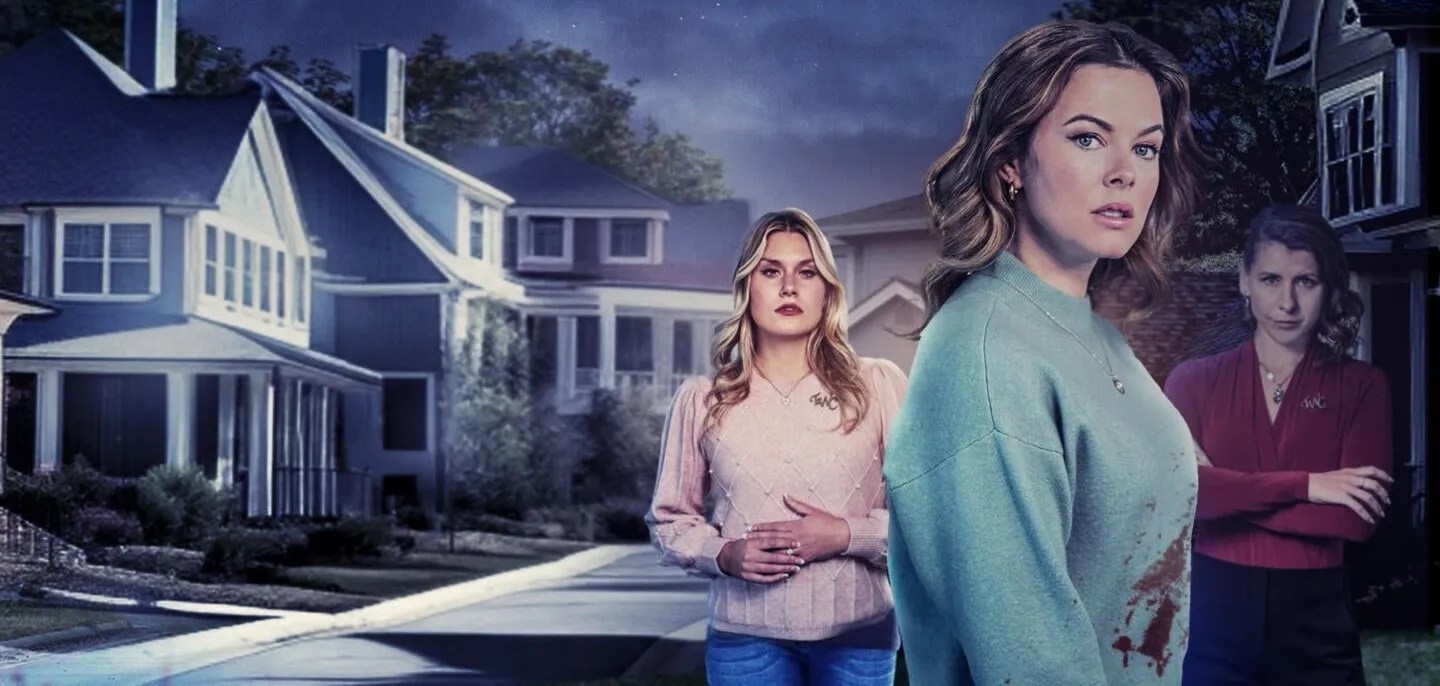Directed by David I. Strasser, ‘Deadly Wives Club’ introduces us to Anita Jackson as she, her husband, and their adoptive daughter, Jilly, relocate to an upscale neighborhood. Her excitement knows no bounds, and the transition seems perfect, especially when Anita is welcomed into the neighborhood’s socially active Wives Club. Her days soon become a whirlwind of social events, play dates, and elegant lunches.
However, Anita begins to notice unsettling occurrences and finds the wives are oddly more interested in Jilly than in her. Her unease grows when she learns about a former club member’s suspicious death, leading her to suspect that the seemingly perfect wives might be hiding a deadly secret. The Lifetime thriller narrates a suspenseful tale of unease and suspicion that leans into the unsettling feeling of people who seem too perfect having something to hide.
Deadly Wives Club: Darkness Hidden Behind Seeming Perfection

The feeling of authenticity and familiarity in ‘Deadly Wives Club’ largely comes from the real world themes of societal privilege linked with exploitation, as well as other films that have set a precedent of an elite group being linked with evil. The story of the Lifetime movie itself is completely fictional and written by Donna Hoke. Some may be struck by the title of the film sounding similar to the hit 1996 movie ‘The First Wives Club.’ The film sees women who are lifelong friends coming together to exact revenge on their ex-husbands who have left them for younger mistresses. However, it is a comedy film without any murders and therefore has no connection to ‘Deadly Wives Club’ except in its title.
The Cinematic Precedent For Deadly Wives Club
The story of an exclusive and upscale community hiding dark secrets has been explored in many films and TV shows. Some of the films that bear resemblance to ‘Deadly Wives Club’ are ‘The Invitation,’ ‘Ready or Not’ and ‘The Skulls.’ Starring Paul Walker, ‘The Skulls’ is a film based on conspiracy theories around Yale University’s Skull and Bones student society. A financially struggling student gets accepted into Yale on scholarship and is drawn to its prestigious secret student society known as The Skulls. Initially enjoying the benefits of the exclusive club like Anita Jackson does in the Lifetime movie, he quickly realizes that it comes with a cost after his friend’s supposed suicide.
‘Ready or Not’ ramps up the sinister in elites to an absurd level as it follows a young woman marrying into a an ultra wealthy family. However, she soon becomes the target of a deadly game of hide and seek, with the family members looking to hunt her down as they have done to all the past brides. The tradition ties into the maintenance of the family’s wealth, and she must survive the entire night as they hunt her throughout the mansion.
‘The Invitation’ is perhaps the most similar film to ‘Deadly Wives Club.’ The 2015 movie introduces us to Will and his wife, who are invited to a party hosted by his ex-wife, Eden. The event is held in their upscale and modern home, with the hosting couple and guests seeming picture-perfect at first glance. Eden had disappeared from Will’s life after the death of their child and returned out of nowhere two years later as a changed person with a mysterious new husband in tow. Will begins to sense an impending doom as paranoia about his hosts and the party guests’ intentions sets in, making him question his hold on reality.
While the narrative of ‘Deadly Wives Club’ is fictional, its believability is supported by decades of cinema reinforcing the connection between high-society privilege and evil. The distrust of seemingly ideal groups and cult-like behavior is something that seems to be innately programmed into us, and further reinforced with films. Ultimately, ‘Deadly Wives Club’ taps into our deepest fears about the hidden darkness within the facade of perfection, making it a compelling and thrilling watch.
Read More: Lifetime’s Couples Retreat Murder: Is it a True Story?


